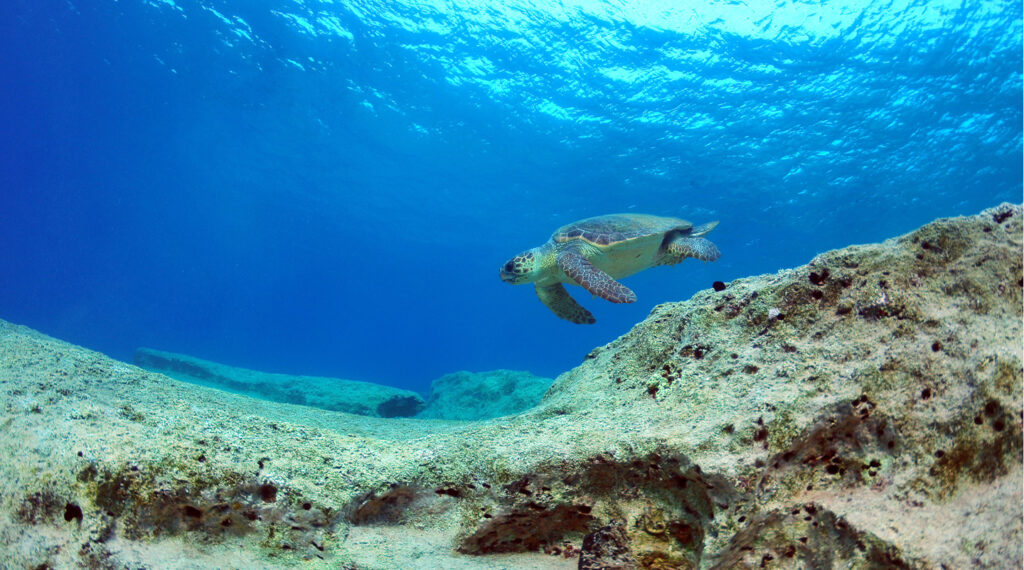How local environmental journalism can help counter the Mediterranean marine conservation crisis

The Mediterranean Sea is one of the world’s most culturally important bodies of water and for centuries has been the primary source of food and livelihoods for millions of people. Although the Mediterranean only covers less than 1% of the world’s oceans, it is one of the major reservoirs of marine and coastal biodiversity and home to more than 17,000 marine species of which 20-30% is only present in the Mediterranean Sea (UNEP).
However, this once abundant sea is now at the centre of an overfishing crisis brought about by a combination of factors. At the heart of the crisis lies a fragmented fisheries management and enforcement regime that leads to a widespread occurrence of illegal, under-reported, and unregulated (IUU) fishing, putting short-term profits over long-term preservation. Although excessive exploitation of fish stocks in the Mediterranean has fallen over the last 10 years due to improved environmental governance, fishing pressure is still at twice the level considered sustainable according to the latest General Fisheries Commission for the Mediterranean (GFCM[1]) report.
The Mediterranean Sea is gradually losing its resilience as a variety of human activities continue to degrade marine habitats and accelerate biodiversity loss. Simultaneously, the effects of climate change further compound these challenges. Solutions to combat these challenges remain complex as they transverse a variety of sectors, both at the local, national, and regional levels. Fortunately, civil society has been working diligently on these topics across all seas, including the Mediterranean. For instance, progress towards 30% of protected areas on land and sea by 2030 is gaining momentum, and more often than not, new regulations promote transparency and accountability. A great variety of organisations conduct research, organise campaigns, and advocate for healthy oceans, both individually and collectively. While the funding for these actors focusing on the Mediterranean is modest, what remains particularly under-funded is independent journalism, not vested in any public or private interest, that reports on these topics in this region.
Public awareness
Local reporting on marine issues plays a key role as it will increase public awareness of how these issues affect the health and sustainability of the Mediterranean Sea. Local media and journalists are often well-versed in the country-specific context and are more likely to gain the trust of key local sources to provide a thorough story, ensuring it resonates with the audience. We believe a well-informed citizen is an engaged citizen – if more people are involved, change will likely be sped up from the ground up. People learn about the scale of the unfolding crisis, about how that crisis impacts their livelihood and their communities, and more importantly, are enabled to use media reports to demand legislative change. This can complement the advocacy efforts of third sector organisations. In adopting this approach, it is imperative that voices of all stakeholders are heard to provide a more inclusive and comprehensive understanding of complex issues. One of the few examples that implement such an approach is the Mediterranean Media Initiative (MMI), an initiative by the Earth Journalism Network. With a particular emphasis on women, youth, and indigenous peoples, they enable journalists and targeted media organisations from the region with story grants, training, and capacity building. With these resources, journalists are able to:
- Expertly report on marine issues that impact both their communities, countries and the wider region.
- Work collaboratively to investigate government and industry (in)actions that fuel the marine biodiversity crisis. As often these issues are not limited to one specific local region or country, a cross-border collaborative approach among journalists allows them to uncover the entire story.
- Promote a more interconnected approach to keep policymakers, industry leaders and other stakeholders accountable for their actions and decisions that are negatively impacting the Mediterranean Sea.
MMI’s Red Coral investigative series exemplifies this approach by unravelling the thriving black market for precious Red Coral, exposing smuggling routes from the coasts of North Africa to Southern Italy and well beyond the Mediterranean. In addition to the environmental consequences of the continuous depletion of this slow-growing coral, the series reveals the dire impact on local traditions, livelihoods and artisans. Safeguarding this historic resource surpasses the local or regional pursuit, emphasising the need for international collaboration across a variety of channels, to ensure Red Coral remains a legacy for future generations.
Empowering Civil Society Organizations
Increasing the frequency and quality of reporting on marine management issues is not just relevant for citizens, it also enhances the advocacy work of the NGOs active within this field. We believe stories and investigations can give civil society the tools and political momentum needed to exert pressure. A coordinated, tailored approach to reverse the culture of non-compliance is essential as shown by the NGO coalition, the Med Sea Alliance (MSA). In 2022, the alliance launched the Atlas, an online tool designed to provide a comprehensive mapping of areas where bottom trawling (a harmful fishing practice) is permanently banned, along with evidence where this activity is still taking place illegally, such as in Marine Protected Areas. The MSA incorporated media reports, as well as data from NGOs like Global Fishing Watch and national control authorities, to highlight documented infringements and persisted with specific policy asks. This collective effort has since resulted in the establishment of a sanction system to address illegal fishing in the Mediterranean.
Evidently, civil society is needed to follow up on what journalists reveal, after all, journalists can expose wrong-doings, but will not tell politicians how to change legislation. Lastly, apart from serving as watchdogs, journalists can also highlight positive developments that civil society can leverage as examples of effective practices. Overall, we see journalism as just one tool among many in the toolbox to support a specific cause and in this case, achieve a healthy and resilient Mediterranean Sea. Relying solely on one tool poses risks, as it neglects an interdisciplinary approach necessary for addressing interconnected and complex problems.
Unfortunately, the production of quality information is in crisis in many of the countries that surround the Mediterranean due to political pressures, diminishing budgets, and lack of funding for field research and environmental reporting. Philanthropy can enable these organisations to continue their innovative reporting, lay the groundwork for robust environmental governance, and help foster the next generation of leading environmental reporters. This guarantees the continued production of compelling, quality local stories on the ecological, social and economic benefits of conserving and restoring the Mediterranean. All while equipping civil society with the necessary tools to enhance protection, management, and monitoring of the sea, and all of the vulnerable ecosystems within it.
[1] The General Fisheries Commission for the Mediterranean – GFCM – is a regional fisheries management organization. With 22 member countries and the EU, its main objective is to ensure the conservation and the sustainable use of living marine resources as well as the sustainable development of aquaculture in the Mediterranean and in the Black Sea.
Authors

